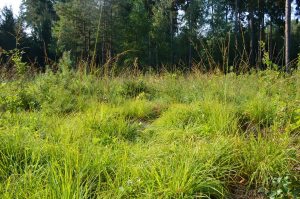
Afforestation is what we are talking about and no one here at WhatShed has a lab coat and a thick enough pair of glasses to talk about all the science behind this. But basically, scientists have realised that by planting more trees in a strategic area on flood plains could help reduce the height of the flood by as much as 20 percent. More trees being planted is always good, but them offering an extra line of defence against floods is just fantastic and something we hope that the government gets on board with quickly and starts planting trees in as many vulnerable areas as possible.
Of course, many people want to know the answer to the question, so do trees stop flooding? And as much as this sounds like a cop out, we have to tell you that it is not a simple yes or a no answer. Trees will undoubtedly help as they will make it a lot harder for the flood water to gather and make its way to populated areas.
We think this is a fantastic idea and while getting the government on board may seem like the only thing standing in the way. It is not quite as simple as this as they may have to get the permission from farmers or whomever property it will be that could be inconvenienced by these flood defence trees. This is certainly a great idea and hopefully, everyone can get on board and actually make this happen.
Can Afforestation Help My Garden?
Of course, this is what many of you are wanting to know. Heavy rain can really wreak havoc on our gardens. From the grass retaining a ton of water, the flowers getting destroyed and just in general your garden taking a real beating from the bad weather. So many of you are probably wondering just how can a few extra trees help protect my garden, well let’s have a little look at that right now.
First of all, before we even talk about trees offering you some protection from mother nature. Just think of the added privacy you can get with some good sized trees. We are not talking big hulking trees like the ones from Lord Of The Rings, but real trees like ash, alder, and English Oak just to name a few. Of course, trees are a vitally important part of our planet, but for your small piece of heaven, your garden. A tree can really be a good focal point or just something that gives your garden that extra bit of character.
In terms of helping your garden fight off flooding or just some really bad water retention. A tree can be a vital asset. You see a lot of soil in your garden is just empty space and that is good. Your plants need room to breathe. But if there is some very heavy rain then this empty space fills up with water and it can actually lead to your plants drowning and eventually dying. Now while you can do many things to take care of your soil to ensure your plants are as well protected.
Trees can actually serve as the first line of defence against the rain for your plants, shed or anything else you have in your garden. A tree can help soak up some of that water and if you have a tree positioned just right then you can even get some protection from the wind as well. Honestly, we think that having a tree in a garden is a great idea in general, but make sure you have a think about where it will not just look the best, but also offer your garden some extra protection.
We know this is not the usual thing us here at WhatShed talk about, but we feel that using trees for help protect against floods is a fantastic thing and for us gardeners having a practical as well an aesthetic reason to put in a tree is great!